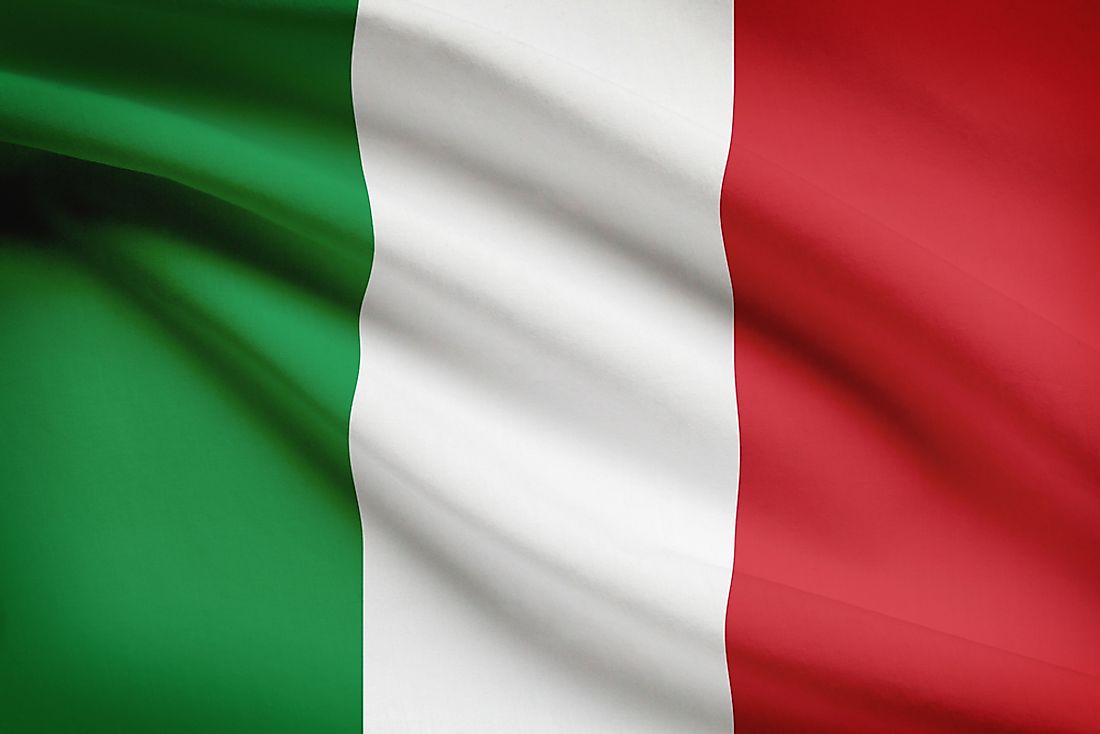What Does The Italian Flag Look Like?

The Italian Flag is one of the nation’s most important symbols and is recognized under the Italian Constitution. The Flag is commonly referred to as the “Tricolore,” due to its distinct tricolor design which features three equally-sized, colored strips running vertically on the flag. The Italian Flag was first adopted in 1948 after the country promulgated the 1947 republican constitution and was a provision of the Constitution. However, the flag had been in use in Italy, albeit unofficially since June 18th, 1946. The Italian Flag closely resembles the official flags of other countries including the Mexican Flag which only differs in aspect ratio and the shade of the colors. The tricolor in the Italian Flag also closely resembles the flag of Ireland, only differing in the red strip as Ireland Flag bears an orange strip instead.
Description Of The National Flag Of Italy
The Italian Flag is designed on a horizontal rectangle with its length-width proportion being set to 2:3. The official description of the Italian Flag is outlined under Article 12 of the Constitution of Italy which provides that “the Flag of the Republic is the Italian tricolor in three vertical bands of equal dimension.” Based on this provision from the Constitution, the Italian Flag bears a tricolor design, comprised of three colors; green, white, and red (arranged from left to right). The three colors appear as three equal strips which run vertically on the flag. The official description of the three colors includes Fern Green, Bright White, and Flame Scarlet. The law does not provide the meaning of the three colors on the national flags. However, popular belief in the country states that the colors are representations of the religious values of Italy where red is said to stand for charity, white representing faith, and green representing hope. Another common explanation behind the three colors on the “Tricolore” is based on the history and geography of the country. The red is said to represent the bloodshed during the Wars of Italian Independence, white is said to represent the snow on the summits of the Alps, and green is said to represent Italy’s green landscape.
History Of The Italian Flag
The “Tricolore” was first used in the late 18th century by student protestors in Bologna who aimed to topple the then Catholic government of Bologna in 1794. These students who were inspired by the Jacobin revolution designed the tricolor after adding the green strip to the red-and-white official flag of Bologna. The Cisalpine Republic later officially adopted the “Tricolore” flag in January 1797, and in so doing became the first republic in Italy to officially use the tricolor flag, after Napoleon was victorious in his Italy conquest. The Kingdom of Italy would later use the tricolor flag and adopted it as the kingdom’s official flag in 1861. The flag of the Kingdom of Italy was the exact tricolor design but defaced with the arms of Savoy.
Other Flags In Italy
Apart from the official flag of Italy, there are several other flags which are used in the country which are recognized by the law. One such flag is the Standard of the President of Italy which was established by law on November 4th, 2000. Other flags are ensigns which include the civil ensign, the state ensign, and the naval ensign.







